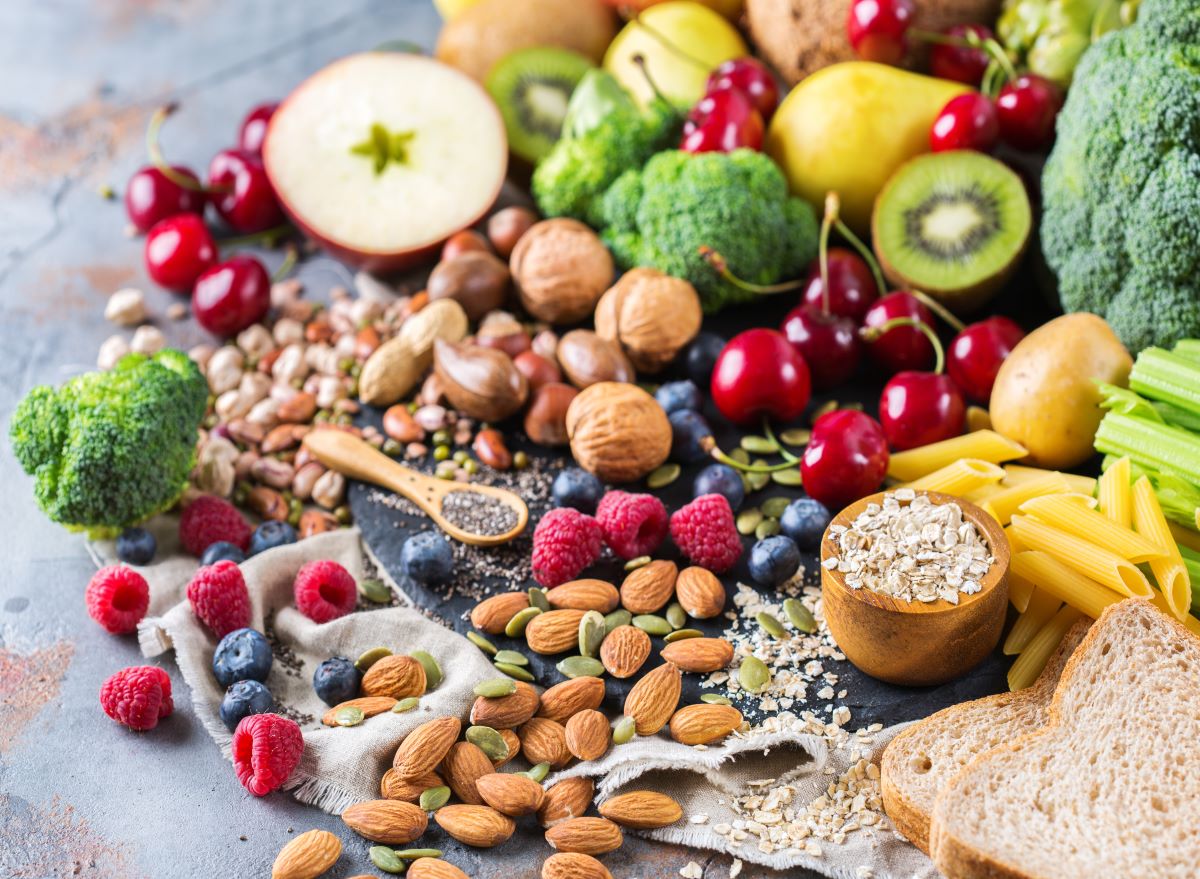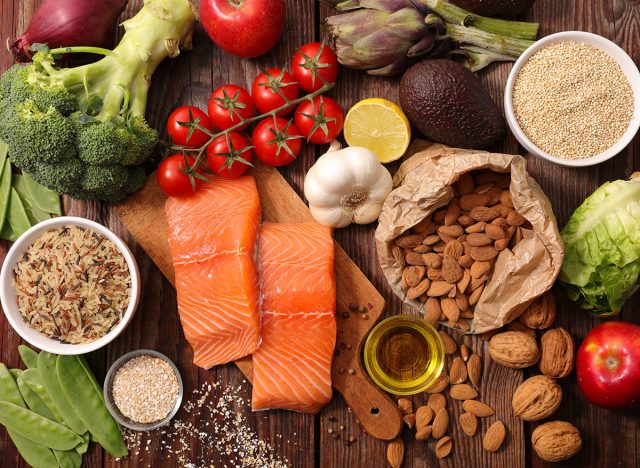These Foods Can Help Reduce The Risk of This Undetected Chronic Disease

It’s easy to forget about kidney health, but those two bean-shaped organs are incredibly important to your overall health, responsible for maintaining a healthy balance of water, salts, and minerals in your blood, as well as filtering out waste and harmful toxins. When the kidneys are not working properly, an individual may experience a number of symptoms, ranging from high blood pressure and lethargy to persistent headaches, facial swelling, and lower back pain.
The team at Meatless Monday spoke with Gail Torres, MS, RD, RN, senior clinical communications director for the National Kidney Foundation (NKF) to better understand why more Americans are developing chronic kidney disease (CKD), and how individuals can reduce their risk of developing the disease by making with a few small lifestyle changes. Answers have been edited for clarity.
What is CKD, and why is it on the rise in the United States?
CKD stands for chronic kidney disease, which means having a kidney problem for three months or longer that may damage the kidneys and lead to a gradual loss of kidney function. Kidney damage decreases the kidneys’ ability to filter wastes, fluid, and toxins from the blood, while also impairing other kidney functions that cause high blood pressure, anemia, bone disease, poor nutritional health, and nerve damage. CKD also increases the risk for heart and blood vessel disease.
According to the United States Renal Data System 2021 Annual Data Report, increasing rates of risk factors that can lead to CKD, including obesity, high blood pressure, and diabetes, contribute to its ongoing prevalence. The report emphasizes that factors such as a sedentary lifestyle and poor diet may be contributing to the increase in obesity, high blood pressure, and diabetes that all ultimately lead to CKD.
Why may people who suffer from the illness not know they have it?
CKD is known as a “silent killer” because it often has no symptoms until it is very advanced. In fact, of the 37 million adults in the United States who have CKD, 9 out of 10 don’t even know they have it because they don’t feel sick. That’s why it is so important to have your kidney numbers tested regularly. These simple tests are crucial to catching CKD early when there are no symptoms, and timely treatments can be started soon enough to prevent further kidney damage. To learn more about CKD testing, click here: https://www.kidney.org/kidney-basics
What are the symptoms?
As CKD progresses into an advanced stage, symptoms may include:
- Increased fatigue
- Trouble concentrating
- Poor appetite
- Nausea and vomiting
- Trouble sleeping
- Muscle cramping
- Urinating more or less than usual
- Swollen feet and ankles
How should people eat to reduce their risk of developing CKD?
Diets low in salt and sodium that emphasize fruits, vegetables, whole grains, legumes, nuts, seeds, unsaturated and monounsaturated fats, low fat/low sugar dairy products, lean meats, and fish high in omega-3 fatty acids include the Dietary Approaches to Stop Hypertension (DASH) diet and the Mediterranean diet, both of which have been linked to a decreased risk for CKD.
These unprocessed, whole-food, plant-focused diets may help reduce the risk for diabetes and high blood pressure and therefore CKD, while helping to maintain a healthy weight, which is also associated with a lower risk for CKD. Plant-based diets low in animal-based products have less net acid production, which may provide a healthier environment for the kidneys, especially for those who are prone to kidney stones and gout, two risk factors for CKD.

What are the top food choices for kidney health to include in one’s diet?
The National Kidney Foundation’s Council on Renal Nutrition (CRN) has compiled a list of foods that are a good place to start, while also recognizing that completely preventing or managing kidney disease by eating certain foods is appealing, the reality is not quite that simple. While some foods are certainly more nutritious than others, no food is the magic answer for good health. You can find plenty of guidance on meatless meals from Meatless Monday and the National Kidney Foundation.
The CRN list includes the foods below:
- Spices
- Strawberries
- Root vegetables (potatoes, carrots, turnips)
- Beans
- Nuts and seeds
- Whole grains
- Leafy greens
- Squash
- Tomatoes
- Blueberries
- Apples
Interested in learning more about the health benefits of plant-based eating? Check out Meatless Monday for recipes, cooking tips, and additional resources focused on incorporating more fruits, vegetables, legumes, and whole grains into your diet.









